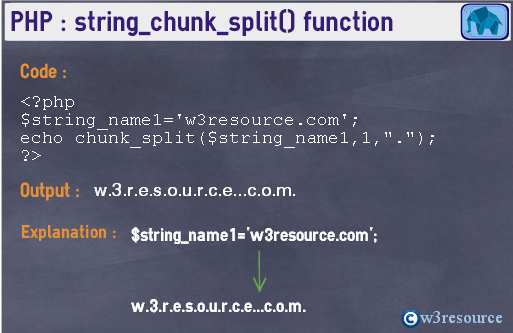

If the string starts with valid numeric data, this will be the value used. The value is given by the initial portion of the string. ' and the numeric value fits into integer type limits (as defined byĪnd thus it will be evaluated as a float: If the string does not contain any of the characters ' When a string is evaluated in a numeric context, the resulting value and type are determined as follows.
PHP CONVERT STRING TO INT MANUAL
The manual page on the string data type defined how the string to number conversion is done: ), the string is also converted to a number (see also table The type conversion does not take place when the comparison isĪs this involves comparing the type as well as the value. If you compare a number with a string or the comparison involves numerical strings, then each string is converted to a number and the comparison performed numerically. This change breaks backward compatibility in scripts that depend on the old behavior. Therefore it was implemented in a new major PHP version. PHP 8 converts numbers to strings before making comparisonsĤ = '4e' // false ('4e' is considered non-numeric therefore 4 is cast as a string and becomes '4') Otherwise, it converts the number to a string and uses a stringĤ = '4e' // true (4e is cast as a number and becomes 4) However this behavior was changed in PHP 8.0: Results in many surprising comparison results, the most notable of Which is not parsable as one and will becomeĬomparisons between strings and numbers using = and other non-strictĬomparison operators currently work by casting the string to a number,Īnd subsequently performing a comparison on integers or floats. Is an int, so in this case it is going to cast I have two mobile phones, each containing two thousands and five hundred messages $string = preg_replace("/".$num_match."/", number_to_string($num_match), $string, 1) While( preg_match($rule, $string, $num_match) ) Param to limit replacement only to first occurrence on each iteration: Each time we only replace the first occurred number, capture it, pass it to ourįunction and then get the string, use that returned string in our replace function which is preg_replace(). $string = "I have 2 mobile phones, each containing 2500 messages" What we do, is first extract the number from the string: The above solution is for simple words and replacements.įor instance, for numbers such as 1995445 you should then search for functions one the internet (or write one) which would convert numbers to string. $new_string = str_replace($numbers, $number_words, $string) It very much depends how long your numbers would be? Assuming 0 to 9, you would do this: Your question does not show any effort, however the following might come useful to you: , then each string is converted to a number and the comparison performed numerically. If you compare a number with a string or the comparison involves Floating point numbers can be converted using exponential notation (4.1E+6).Īnd also (was already given by deceze though) the chapter on Comparison Operators: The exponent is an 'e' or 'E' followed by one or more digits.Īn integer or float is converted to a string representing the number textually (including the exponent part for floats).

Otherwise, the value will be 0 (zero).ĭata is an optional sign, followed by one or more digits (optionally containing a decimal point), followed by an optional exponent.

In all other cases it will be evaluated as a float.ĭata, this will be the value used. ), the string will be evaluated as an integer. If the string does not contain any of the characters '.', 'e', or 'E' and the numeric value fits into integer type limits (as defined by See Type Juggling and Type Comparison Table and String conversion to numbers for details: If an integer value is then assigned to $var, it becomes an integer.

That is to say, if a string value is assigned to variable $var, $var becomes a string. A variable's type is determined by the context in which the variable is used.


 0 kommentar(er)
0 kommentar(er)
